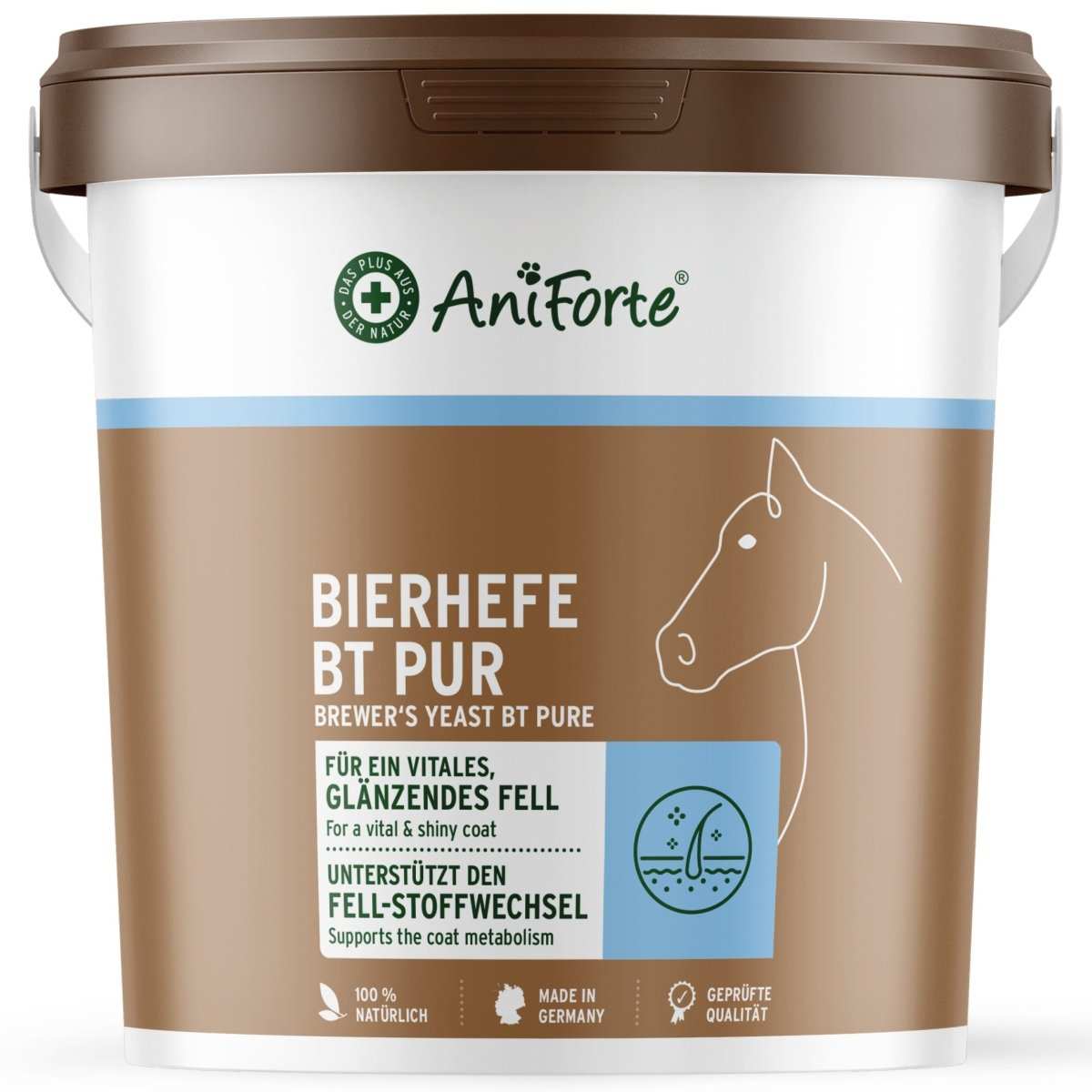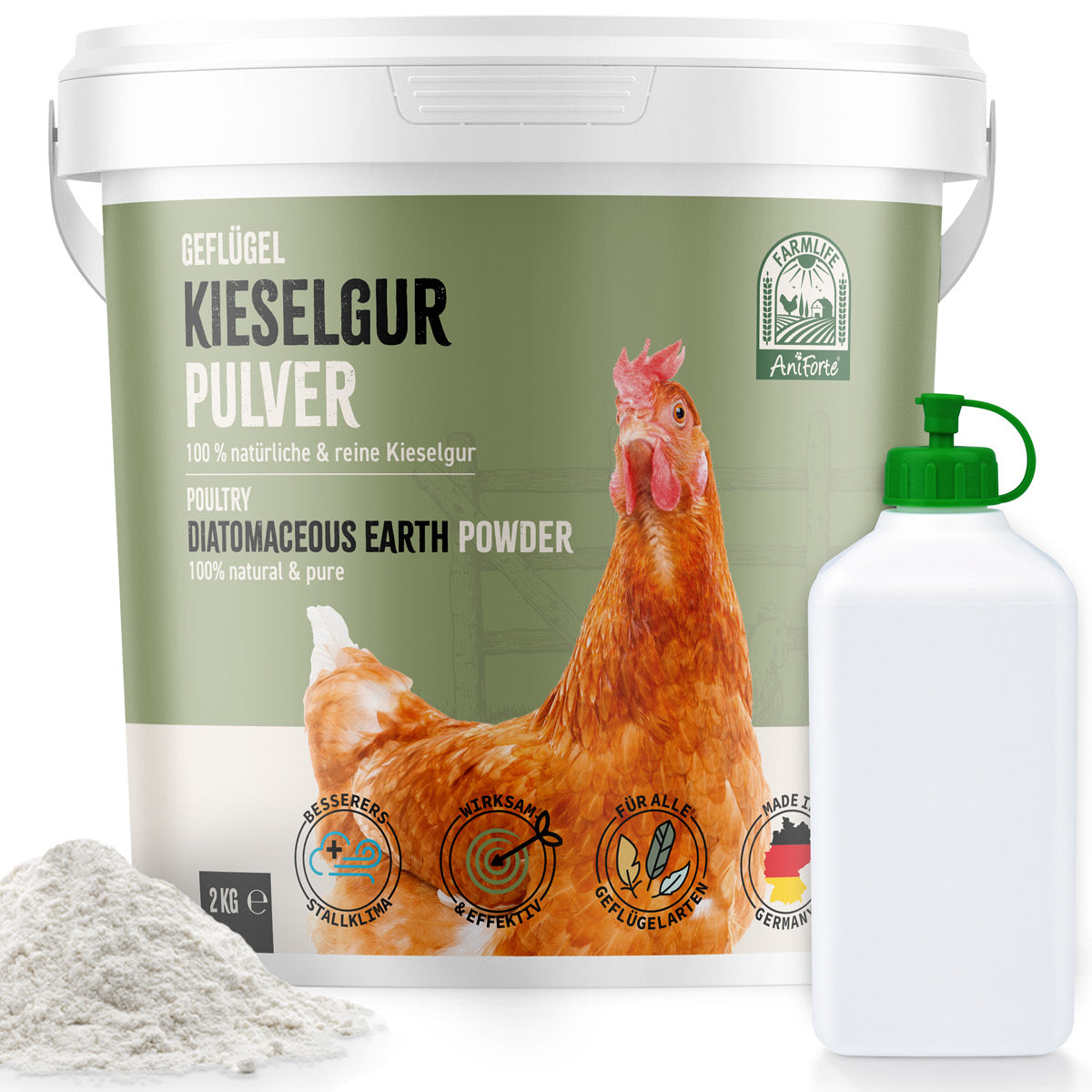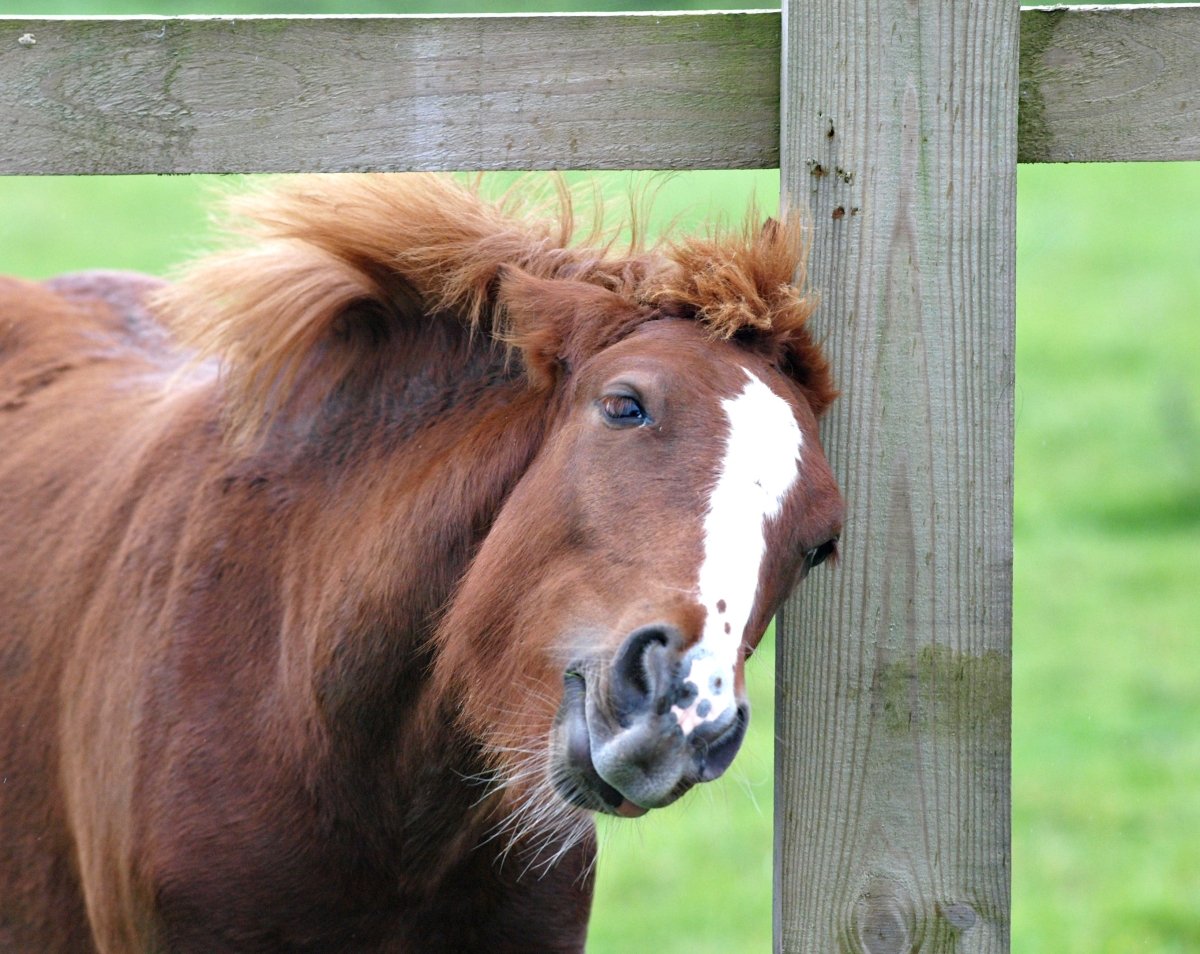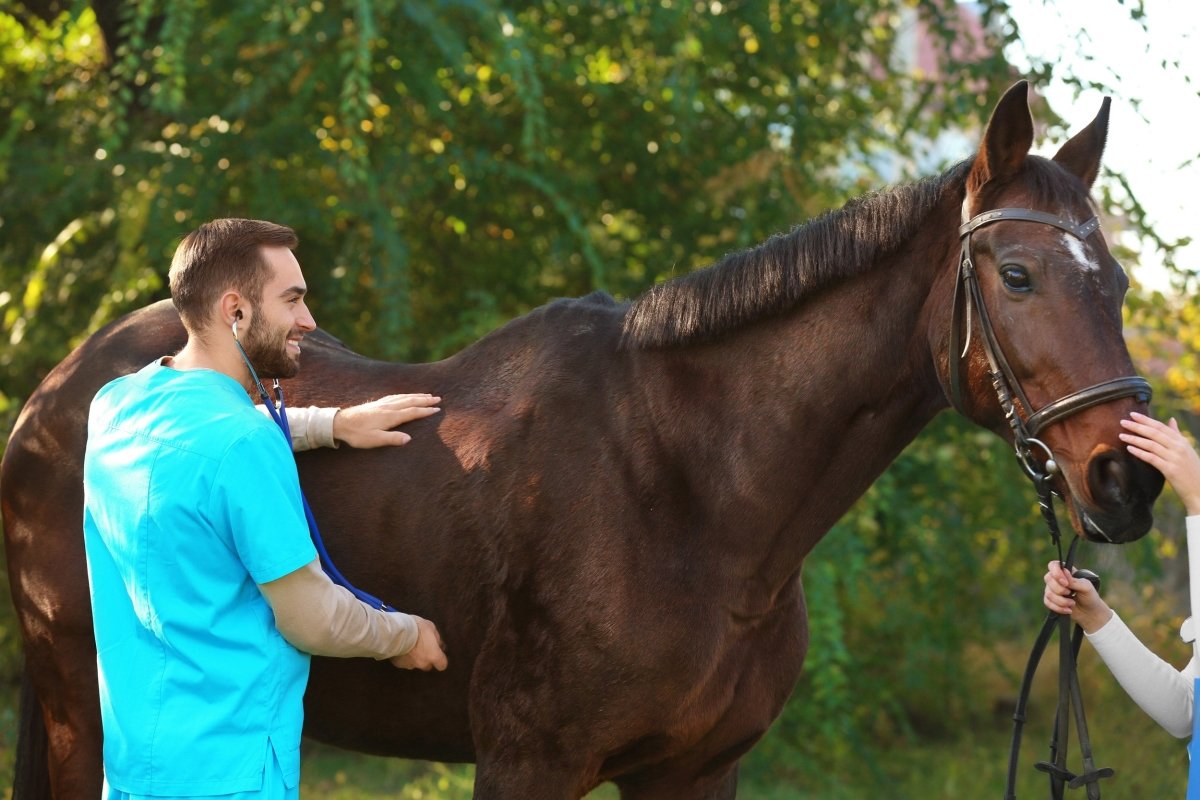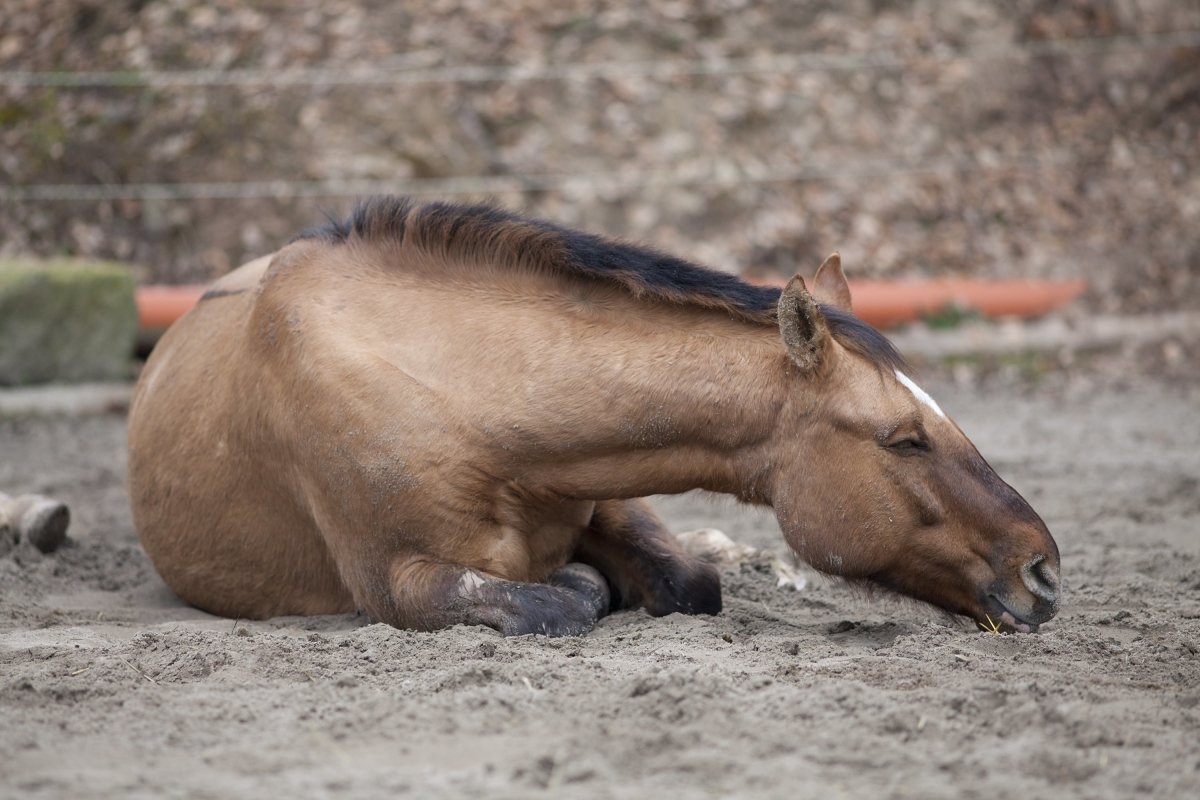Especially in late summer and fall, when the mosquitoes and creepy-crawlies are flying their merry rounds in the paddock and there's often a rain shower in the evening, you'll probably see it more often than usual: Your horse scratches itself. If this only happens sporadically, there is no need to worry - after all, even our equines are not insensitive and react to mosquito bites or horsefly bites.
However, if you notice that your horse is constantly itching, rubbing against fences, posts or the stable wall, biting itself and injuries to the skin are already occurring, then it is not a simple midge bite. In the following, we at AniForte would like to explain to you the causes of itching in horses, how to differentiate between various infestations and diseases and how to treat them with the power of nature.
How does itching manifest itself in horses?
If your horse suffers from itching, it will hardly miss an opportunity to scratch itself; depending on the region, this can happen with the hooves and teeth, but even sharp-edged and rough objects such as fences, tree trunks or its own stall will not be missed to reach nasty itchy spots.
If you've ever had a rash yourself, you'll know that constant itching can cause stress - even in horses. If your horse is constantly scratching, it's not just mentally exhausting; as it progresses, the rubbing and scratching usually leads to skin irritation or even sore, bloody patches, which in turn are the perfect breeding ground for bad bacteria that further exacerbate the horse's itching.
To stop this vicious circle and prevent secondary infections, you should quickly find out the cause of the horse's itching and treat it. To reduce the risk of injury during this time, it is also advisable to pad sharp edges and rough surfaces in the box and in areas that are accessible to your horse.
Horse itching: The 3 most common triggers
Even though itching can be very unpleasant for horses and can unfortunately spread to humans, other horses and other animals if left untreated and depending on the cause, it can usually be managed well with the right diagnosis and appropriate treatment procedures. In the following, we would like to describe the 3 most common triggers of itching in horses and give you typical symptoms for identification; if you are still unsure, you should also ask a vet for advice.
- Itchy horse: Parasite infestation - recognizing mites, lice & hair lice
Parasites in horses are among the most common triggers for itching in horses. It is not so easy to tell whether this is mange caused by mite infestation, lice or hair lice, as both the seasons of the outbreak and the symptoms are very similar; parasite infestation in horses often occurs for the first time in the fall when the climate is warm and humid and the animals spend more time in their stalls again.
However, some mite species also feel very comfortable in summer. This is when so-called summer mange occurs - the symptoms here can easily be confused with sweet itch or mauke, especially in the case of the most common Chorioptes mange, which, like eczema, usually causes itching in the horse's fetlocks. A clear indication of the difference between mites, hair lice and lice is provided by an examination of the coat.
While mites are tiny parasites, some of which live under the skin, lice and hair lice as well as their eggs and nits can be seen with the naked eye. While the coat of hair lice looks like a patchwork quilt, mite-induced mange often causes symptoms such as blisters, nodules and crusts as well as weeping wounds that make the horse itch.
But how do you treat parasites that cause itching in horses? The treatment of mites, hair lice and lice is similar in many respects, as it initially involves treating the horse's itching and eliminating a parasite-friendly environment. Both mites and hair lice often infest immunocompromised, particularly old, young or malnourished animals. For this reason, species-appropriate husbandry is essential for the prevention of parasites. In our online store you will find a selection of different sprays that help with itching in horses, such as the Mite Stop Spray or
Pay attention to regular and intensive coat care, shortening long fetlocks, clean stables without vermin and a dry environment to prevent parasites and get rid of them in the event of an acute infestation. As a lack of zinc and vitamins can also be a reason for infestation and itching in horses, you should also ensure that your horse's feed has an ideal nutrient composition. Our natural AniForte hay cobs and treats for horses support a healthy and needs-based diet and give your horse back a piece of nature!
- Itchy horse: Mauke - where it comes from and how it manifests itself
Similar to sweet itch and chorioptic mites, sweet itch occurs on the fetlocks and also manifests itself as itching in the horse. This often results in red, bloody wounds and, depending on the severity, either dry scabs, oozing, greasy wounds or typical wart formation on the fetlocks.
As mumps is not a parasitic infestation but the spread of harmful bacteria, direct transmission between two horses is not a trigger. In fact, the causes are more likely to be due to incorrect husbandry caused by inadequate or excessive care and hygiene of the horse.
Mauke bacteria feel particularly at home in a damp environment, which is why the disease often spreads in the fall and winter. However, a weakened immune system, poor nutrition or even psychological factors such as stress can also cause mauke formation and thus itching in horses. We would now like to tell you what you can do about it.
It's actually not that difficult to get rid of severe itching in horses. We have already mentioned the most common triggers for mauke and these should be avoided in future: Make sure you clean the facilities regularly, use dry bedding and muck out the stable and paddock, don't leave your horse standing in mud or rain for long periods of time without cleaning and drying it thoroughly afterwards, trim the coat on the fetlocks and make sure your horse has a balanced diet that strengthens its immune system.
To get rid of symptoms such as itching and to avoid secondary parasitic infections of the wounds, you should contact your vet. They will treat your horse with the right medication to restore the bacterial flora in the affected areas. In consultation with the vet, you can also give your horse our natural AniForte mauke formula made from valuable herbs to support the immune system and metabolic function of your horse.
- Itchy horse: Eczema - How rain and summer eczema differ
We have already discussed parasitic and bacterial triggers of itching in horses. Unlike summer eczema, this usually occurs during cold and damp seasons such as the . Rain eczema or dermatophilosis can also occur at this time, which, unlike sweet itch, is caused by bacteria and is more likely to cause fever, pustules and bald patches, but less likely to cause itching in horses.
Sweet itch, on the other hand, is an allergic reaction to midges and black flies - once a horse is infected, it is a chronic skin rash that comes back every year and causes restlessness, dandruff, hair loss, pustules and lumps as well as itching in the horse.
To prevent a horse from becoming an eczema sufferer in the first place, you should keep a close eye on it, especially in summer, and check for pustules, particularly on the belly, mane and base of the tail. You can now find out what you can do to prevent your horse from becoming sensitized to the bites of gnats and black flies and what helps against acute summer eczema itching in horses.
How to get allergic itching in horses under control
When itching is triggered in a horse after it has been bitten by a blackfly, it is usually already too late, as the itchy areas continue to be stressed by the rubbing and itching until they become weeping wounds, which are susceptible to bacteria and secondary infections and should be cleaned with our AniForte silver water spray, for example.
To prevent summer eczema and itching in horses, it is most effective to protect the horse from the bites of black flies and gnats in summer. To do this, certain care products and fly sprays can be applied to the horse's skin, which is then covered with an eczema blanket and head protection. It is also best to keep horses away from places where there are often lots of midges, e.g. in damp swampy areas, on dung heaps or at dawn and dusk. This is the best way to prevent itching in horses.
To avoid sensitization to the bites and recurring itching in horses, excessive stress for the animal should be avoided in summer. Ensure sufficient exercise, healthy intestinal function and avoid a diet high in protein, starch or carbohydrates.
If you have any questions about itching in horses or other topics, please feel free to contact us.

